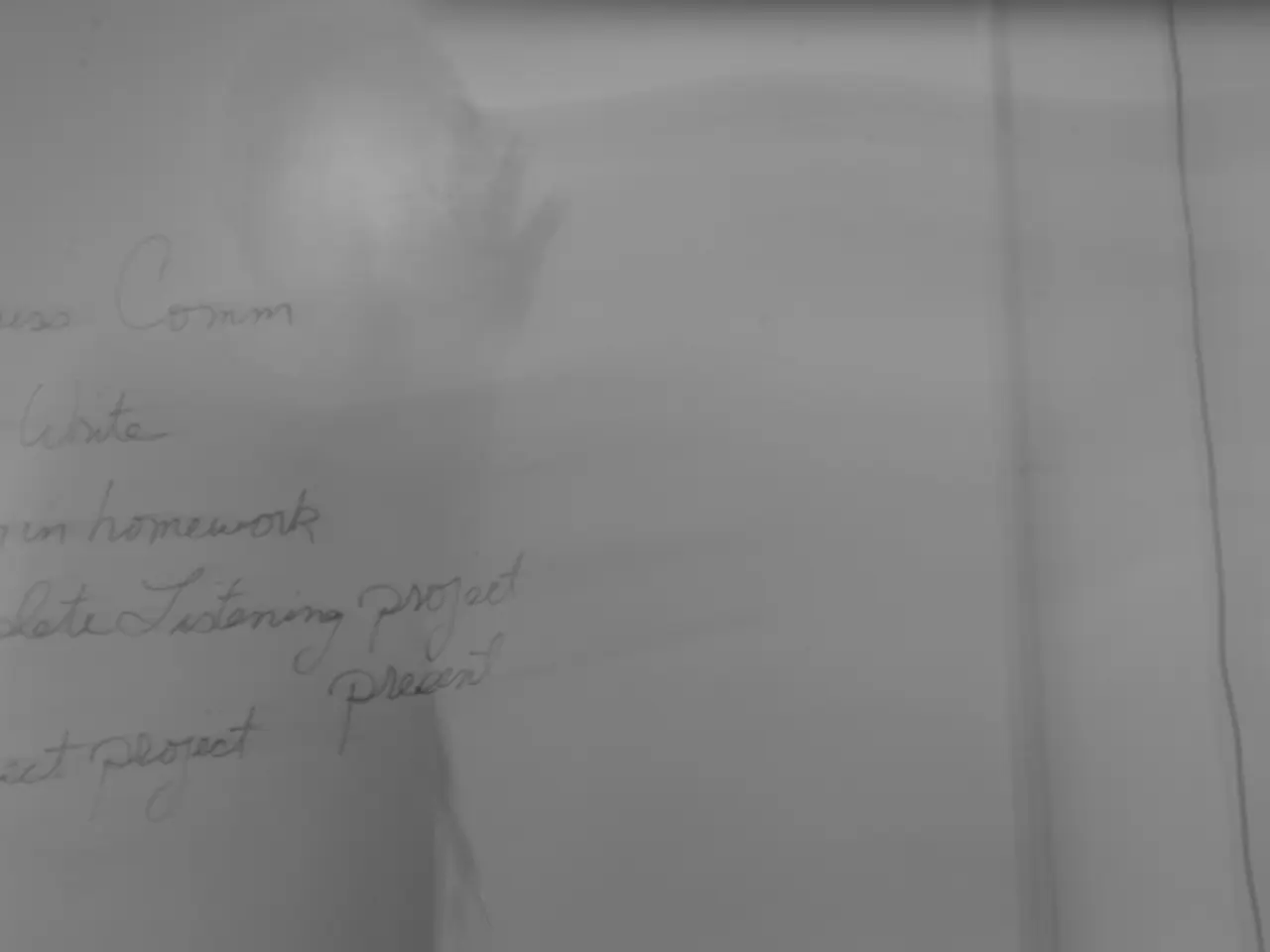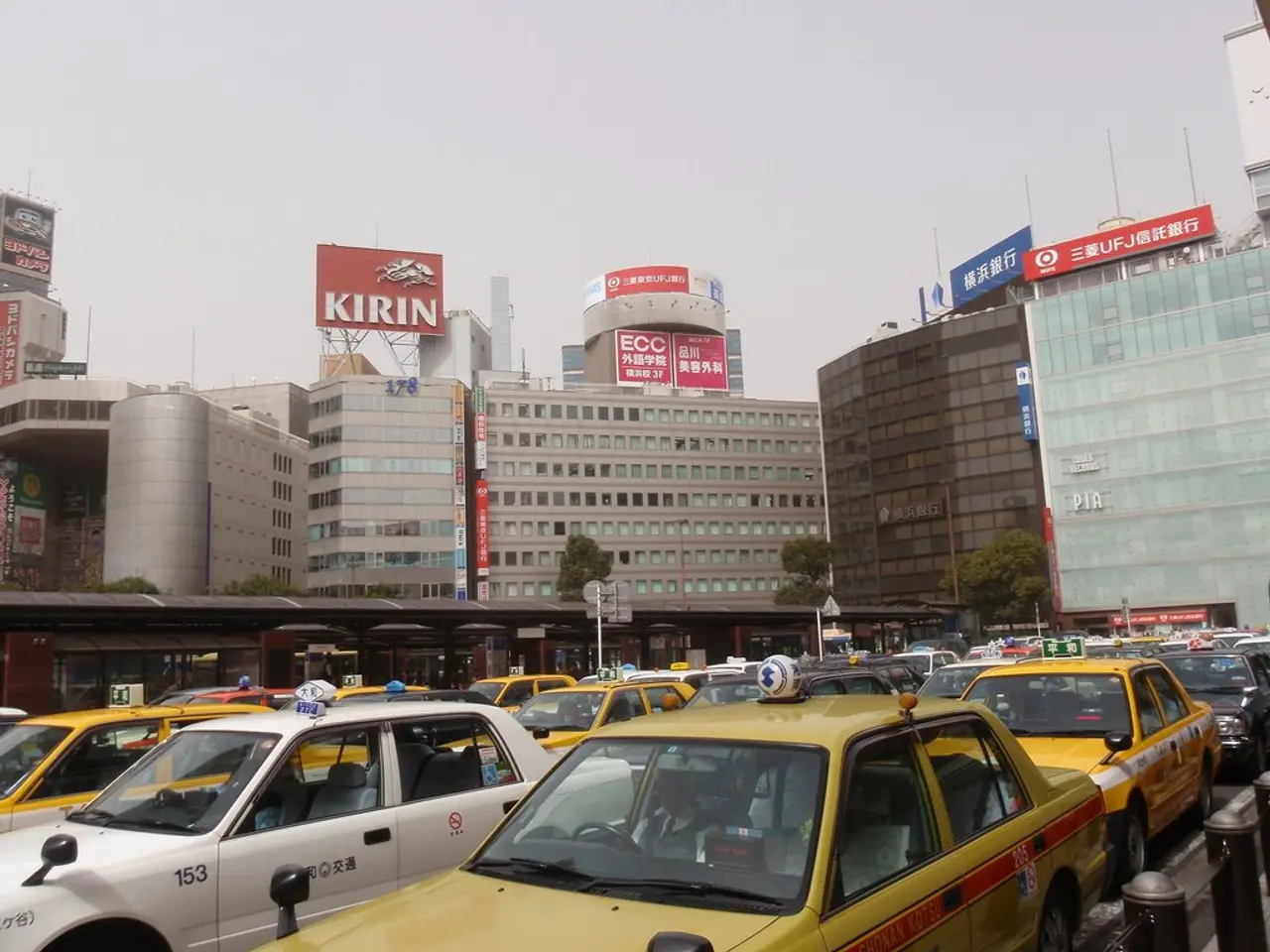Kuwait Stock Exchange Under the Lens of Geopolitical Tensions
May Bourses Suspend Trading Due to Regional Conflicts? Examination of Regulatory Options and Investor Reactions
Ever since the escalation of tensions between Iran and Israel, traders in Kuwait and the wider Gulf region have been eager to understand how these events might affect trading on the Kuwait Stock Exchange (Boursa Kuwait). With escalating geopolitical fears, there's a growing concern about halting trades during today's session due to intensified market volatility.
Remember the chaotic trading session from April 6? Al-Rai daily reported it as one of Boursa Kuwait's most turbulent sessions in 2021. This chaos ensued as a result of global market shocks caused by U.S. President Trump's tariff plan, popularly known as "Liberation Day," which fanned fears of an impending global trade war.
During that turbulent session, Boursa Kuwait's main indices plummeted dramatically. The premier market index alone collapsed over 5%, triggering the activation of the trading halt system—a regulatory tool designed to quell excessive market declines. Trading was momentarily suspended for 15 minutes to calm fears and restore order.
Boursa Kuwait boasts a tiered regulatory system that automatically halts trading in response to sharp market declines:
- A 5% decline activates a 15-minute trading halt.
- A 7% decline brings about a 30-minute halt.
- A 10% decline suspends trading for the entire session, although this applies only to the affected market and not the entire exchange.
It's essential to note that these thresholds can only be activated once per market per session.
Reflecting on the April 6 session, Boursa Kuwait's general market index fell 5%, the premier market index crashed by 5.13%, and the Main 50 Index dropped over 6%. Liquidity spiked up to KD 48 million, signalling a panicked rush to exit positions, particularly among popular stocks, fueled by widespread investor anxiety.
Should today's session mirror that experience, Boursa Kuwait's circuit breaker mechanism will likely be reactivated as part of its standard regulatory protocol. This will help mitigate panic selling and keep the market stable.
Since March 15, 2020, Boursa Kuwait, with approval from the Capital Markets Authority (CMA), revised trading intervals to bolster market stability during volatile periods. They implemented:
- Lowered the downward price limit for entering orders to 5%.
- Maintained the upward limit at 10%.
In times of abrupt price movements, a two-minute auction period is initiated after a security is halted. During this interval, only buy/sell orders meeting the minimum stock quantity (NMS), based on a percentage of the average daily volume, are accepted for trading. This revised mechanism is an integral part of the Exchange's broader strategy to swiftly adapt to fast-moving events, ensuring transparency and protection for all participants.
Boursa Kuwait's regulatory framework empowers it to intervene during crises, geopolitical escalation, or extraordinary events to safeguard investor protection and market integrity.
In sum, whether today's session will be halted depends on how the indices respond to geopolitical developments. If fear-driven selling pushes losses to key thresholds (5%, 7%, or 10%), Boursa Kuwait will intervene accordingly to protect the market's stability.
In the meantime, the Exchange watches the situation closely, ready to take swift action to quell volatility and maintain market stability.
In light of the ongoing geopolitical tensions between Iran and Israel, it's crucial to consider how these events might impact the business sector, particularly finance, as traders on the Kuwait Stock Exchange (Boursa Kuwait) anxiously observe the situation. Given the historical volatility of the market, such as the turbulent trading session on April 6, political instability could potentially trigger the activation of Boursa Kuwait's circuit breaker mechanism, designed to maintain market stability. This highlights the interconnectivity between politics, business, and finance, and the general-news value of monitoring geopolitical developments.




